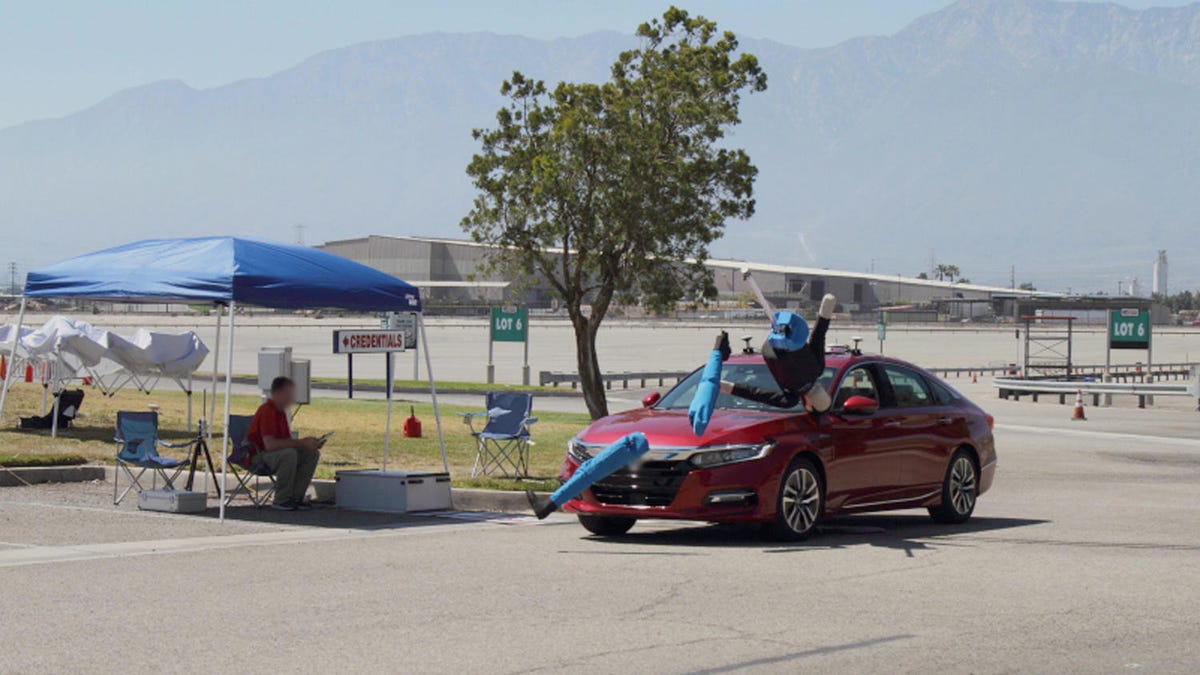AAA study finds pedestrian-detection systems utterly flunk out after dark
And if the car was going 30 mph? The system was ineffective.

Not the scene you want to see.
Automakers are quick to point out loads of active safety features that often come standard on many new vehicles for sale. This tech isn't free, however, it's certainly helped push the price of new vehicles higher in recent years. With that in mind, it's not great to know that one of the features, pedestrian detection, was rather useless in testing.
AAA conducted a new study and published its findings last week that showed, overall, pedestrian-detection systems hardly live up to their promise. In fact, after dark, none of the tested system were able to identify or react to a pedestrian. That's an important stat since 75% of pedestrian deaths occur at night.
For the test and study, AAA fielded four different cars: A 2019 Chevrolet Malibu, Honda Accord, Tesla Model 3 and Toyota Camry.
Pedestrian-detection system often use sensors to identify a pedestrian in front of the car and work to mitigate or avoid a crash when the driver doesn't react quickly enough. In AAA's testing, with pedestrian props, there wasn't really a bright spot in any situation. The most successful scenario was the instance where an adult crossed directly in front of the car at 20 mph -- the tech helped avoid a collision 40% of the the time. At 30 mph? Not so much, as the systems failed to avoid a collision.
In scenario two, the test mimicked a child darting out from between two cars. The technology mostly failed here, too, with a collision happening 89% of the time. In a more typical setting, the third test had a pedestrian cross as the driver made a right hand turn. None of the test systems avoided a collision in this instance, either.
Even when approaching two pedestrians on the side of the road, backs facing the car, a crash occurred 80% of the time at 20 mph. As mentioned, any of these tests performed at night revealed no system benefit with a collision every single time.
The figures aren't exactly the peachiest numbers for the technology, though AAA said automakers are moving in the right direction to help improve pedestrian safety. Each year, about 6,000 pedestrians die due to vehicle collisions, or 16% of all traffic deaths annually.

